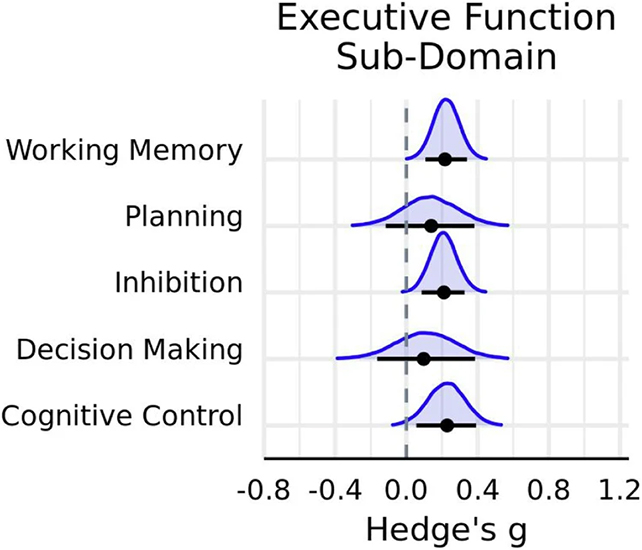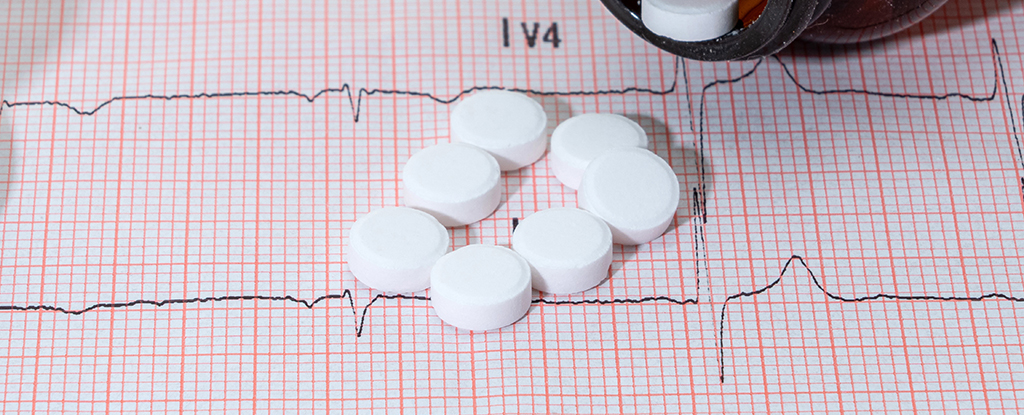ARTICLE AD
Regular exercise is generally good for us, but the ins and outs of how to work out, and how long for, is still a matter of costs and benefits. In a new review, researchers have shown that even short bursts of activity can give us a noticeable brainpower boost.
The researchers, from the University of California Santa Barbara, dug through 113 previous studies, involving a total of 4,390 participants. When it comes to one-off exercise sessions, the results suggest vigorous activities are best for cognition.
In particular, cycling and high-intensity interval training (HIIT) were linked to the biggest differences in executive functioning – that's the part of our cognitive abilities that deal with working memory, and being able to plan and multitask.
 Executive functioning saw the biggest gains. (Garrett et al., Communications Psychology, 2024)
Executive functioning saw the biggest gains. (Garrett et al., Communications Psychology, 2024)"Our work showed the strongest evidence for a positive effect of single bouts of exercise on cognition and that this evidence was impacted by a variety of factors," says neuroscientist Barry Giesbrecht, from UC Santa Barbara.
The positive effect wasn't clear on every cognitive measure: while the participants had better overall reaction times after single workout sessions, for example, there was no increase in accuracy in cognitive tasks.
That suggests we're most likely looking at a complex picture involving multiple factors. It's possible that eventually, certain training sessions could be tailored specifically to produce boosts in brainpower, when they're needed. Workouts that involve mental as well as physical challenges might also help.
The biggest brain gains were found in exercises less than 30 minutes in duration, and also when cognition was tested after exercise rather than during the workout itself. However, even the biggest jumps were relatively small overall.
"These results are surprising, considering that exercise intensity is believed to have an inverted-U relationship with performance; where moderate intensity exercise elicits the greatest enhancements while more intense, fatiguing exercise imposes decrements," write the researchers in their published paper.
The message here, as it has been in many previous studies, is that you don't need to do a lot of exercise to start feeling the benefits – sometimes it just takes 10 minutes. That's encouraging for those of us who find it difficult to get into a regular routine.
That goes for other aspects of health besides brain flexibility too. Earlier research found that high-intensity interval training (HIIT) workouts can be good for improving heart health and reducing the risk of future health problems.
Having carefully combed through data collected by other researchers, the team behind the review now wants to collect some new data on the topic – both through tests in the lab, and by monitoring actual exercise sessions out in the real world.
"There is moderate evidence for an acute bout of aerobic exercise inducing a small enhancement in overall performance on cognitive tasks, especially on those that probe executive function and measure response time," write the researchers.
The research has been published in Communications Psychology.

 3 weeks ago
34
3 weeks ago
34 

